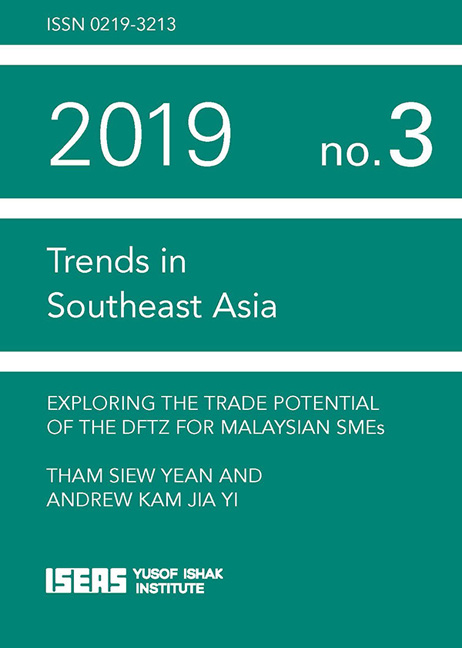Exploring the Trade Potential of the DFTZ for Malaysian SMEs
Published online by Cambridge University Press: 31 January 2020
Summary
INTRODUCTION
In traditional international trade, geographical distance can affect trade negatively with trade declining as the distance between two markets increases. The concept of distance was later extended to cover subjective concepts, such as “cultural distance” as well common history, language, legal systems or even institutional dimensions such as trade agreements between trade partners. E-commerce on the other hand, differs from traditional trade in the distance dimension because the Internet is touted to have made the world flatter by reducing the time and transaction costs associated with distance. This has led to claims on the death of distance in international trade, while others deem that the role of distance has merely been reduced.
Measuring the impact of e-commerce on exports requires a working definition of e-commerce that is quantifiable, and different proxies have been used in different studies and over time. The earlier literature focused mainly on the impact of Internet usage on international trade at the aggregate level. Clarke's cross-country study4 indicates that enterprises that are connected to the Internet, export more than similar enterprises that are not connected. Similarly, at the aggregate level, Freund and Weinhold found that increases in company's websites in a country help to explain export growth in the following year for the fifty-six developed and developing countries that were pooled together in their study. In another study, ICT infrastructure is found to be relevant for the export performance of developing countries, and its impact on exports seems to be more important as a country becomes wealthier.
At the firm level, the relationship between the Internet and exports may not be so straightforward as it may be conditional. Lu and Julian, in a study covering a sample of 133 Australian firms found that using the Internet can help firms reduce the cost of doing international business besides giving them a competitive advantage over firms without Internet usage. The international experience of a firm is a significant factor in discriminating between high and low export-marketing performance.
Firm-level studies focusing specifically on SMEs in developed countries indicate that the eBay platform has opened up export markets to SMEs at lower costs for some EU countries. A study of SMEs in the United Kingdom shows that ICT users are 15 per cent more likely to export, ceteris paribus.
- Type
- Chapter
- Information
- Publisher: ISEAS–Yusof Ishak InstitutePrint publication year: 2019

